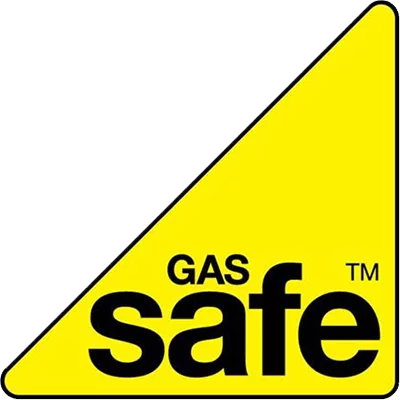Water leaking from the flat above poses a pressing question: “Water leak from upstairs flat who is liable UK?” In the UK, determining financial responsibility—a mix of lease obligations, source of the leak, and actions of those involved—is no small feat. Our straightforward guide cuts through the confusion, equipping you with knowledge to identify the liable party and take appropriate action without excessive legalese.
TL:DR
- Lease terms define the responsibilities of leaseholders and landlords for maintenance and repairs, which affects liability in the event of water leaks. Leaseholders usually handle internal issues, while landlords cover the structure and communal areas.
- The location and cause of a water leak in a flat significantly influence who is responsible for addressing it. Professional methods like trace and access with thermal imaging aid in leak detection, with leaseholders typically accountable for leaks originating from their property.
- Insurance, specifically buildings and contents insurance, can provide coverage for damages due to water leaks, but it’s essential to understand and comply with the terms and procedures of the insurance policy to ensure successful claims.
Determining Liability for Water Leaks in Flats
When you’re dealing with a water leak in your flat, one of the first things you’ll want to figure out is who’s liable for the repairs. This can depend on a number of factors, including the terms of your lease, the origin and cause of the leak, and the parties involved in the situation.
By understanding these factors, you can navigate the murky waters of liability and ensure that the right parties are held accountable for addressing the leak and any resulting water damage.
Lease Terms and Responsibilities
The terms of your lease can play a crucial role in determining who’s responsible for dealing with a water leak in your flat. The lease outlines the obligations of both the leaseholder and the landlord when it comes to maintenance and repairs. Generally, leaseholders are responsible for maintaining the structure and pipework within their own flat, including repairs to internal plumbing, wiring, plasterwork, and floorboards. If a water leak occurs and results in damage to another flat, the lease may stipulate that the leaseholder of the leaking property is responsible for addressing the repairs.
However, the landlord also has a role to play. They are typically responsible for maintaining the ‘bricks & mortar’, fixtures, and services of the building. This includes ensuring that the building’s structure is well-maintained and that any communal areas or shared facilities are in good working order. If a water leak originates from a communal area or another flat owned by the landlord, it becomes the landlord’s responsibility to address the repairs.
Leak Location and Cause
The location and cause of a leak can also have a significant impact on determining who is responsible for dealing with it. There are several methods available for identifying the location and cause of a water leak. Professionals often use the trace and access method to locate concealed and hard-to-find leaks. To seek access to the source of the problem, they use specialized equipment, such as thermal imaging cameras, to detect moisture and accurately pinpoint the location of the leak.
Identifying the cause of the leak is also crucial. Common causes of water leaks in flats include:
- Burst pipes
- Running taps
- Washing machine issues
- Faulty plumbing
If a leak is caused by a communal or shared pipe, the cost of repairing the affected areas may be covered by the service charge paid by leaseholders.
Conversely, if the leak is caused by a fault within a leaseholder’s flat, they may be held responsible for covering the cost of repairs.
Parties Involved
The parties involved in a water leak situation can include the leaseholder, the landlord, and the property management company. Each party has their own set of responsibilities and obligations when it comes to dealing with a water leak. As a leaseholder, you are generally responsible for taking immediate action to stop the leak and minimise the damage. This might involve shutting off the water at the main valve and moving belongings away from the affected area.
If a landlord or managing agent is involved, they are expected to support you in identifying the source of the leak, providing evidence of the cause, and proposing solutions for resolving the issue. If the leak is originating from a flat that they own, they may be responsible for carrying out the necessary repairs. However, if the leak is caused by neglect on your part, you may be held financially responsible for the resulting damage.
Steps to Address a Water Leak from an Upstairs Flat

Now that we’ve covered how to determine liability for a water leak in a flat, let’s move on to the steps you should take if you find yourself dealing with a water leak from an above flat. The key here is to act quickly and effectively to minimise the damage and ensure that the issue is resolved as soon as possible.
This process involves detecting and stopping the leak, notifying the relevant parties, and seeking professional help if necessary. If you require further assistance, don’t hesitate to reach out.
Detecting and Stopping the Leak
Your first priority when dealing with a water leak should be to detect and stop the leak. This is crucial to prevent further damage and to help determine the cause of the leak. There are several signs that may suggest the presence of a water leak in your flat. These include visible signs of dampness, moisture, or water accumulation in your flat. If you notice any of these signs, it’s important to take immediate action to halt the leak.
To do this, you’ll need to turn off the water supply to your flat. This can usually be done by turning off the stop cock or stop valve. Once the water supply is turned off, you should then seek professional help to accurately assess the damage and provide expert advice on how to repair the leak. This might involve hiring a professional plumber or a leak detection specialist.
Notifying Relevant Parties
Once you’ve detected and stopped the leak, the next step is to notify the relevant parties. This can include the property management company, the landlord, and your neighbours, especially if the leak is originating from their flat. It’s important to keep all parties informed about the situation, as they may need to take action to prevent further damage or to assist in resolving the issue.
When notifying the relevant parties, it’s important to provide them with as much information as possible about the leak. This includes the location and cause of the leak, as well as any measures you’ve taken to minimise the damage. It’s also a good idea to keep a record of all communications related to the leak, including contact details, as this can be useful if you need to file an insurance claim or pursue legal action.
Seeking Professional Help
In some cases, you may need to seek professional help to deal with a water leak in your flat. This could be necessary if the leak is severe, if it’s causing significant damage, or if it’s difficult to locate or stop the leak on your own. Professional leak detection companies can use specialised equipment to accurately locate the leak and assess the damage. They can also provide expert advice on how to repair the leak and prevent future leaks from occurring.
When seeking professional help, it’s important to choose a qualified and experienced professional. They should have the necessary equipment and expertise to accurately locate and assess the leak, and they should be able to provide you with a comprehensive report outlining the cause of the leak and the recommended repairs. Remember, dealing with a water leak promptly and effectively can save you a lot of time, money, and stress in the long run.
Insurance Policies and Claims
Insurance can play a significant role in covering the costs of water leaks and related damages. Depending on the specific terms and conditions of your insurance policy, you may be able to claim for the cost of repairs and any damage caused by the leak. However, navigating the insurance claims process can be complex and confusing, so it’s important to understand how it works and what you need to do to make a successful claim.
Buildings and Contents Insurance
Buildings and contents insurance are two types of insurance that can cover the costs of water leaks in flats. Buildings insurance generally covers the cost of repairing or rebuilding the physical structure of your home if it’s damaged by a water leak. This can include the walls, roof, floors, and any fixtures and fittings. On the other hand, contents insurance covers the cost of replacing or repairing your personal belongings if they’re damaged by a water leak.
It’s important to note that not all buildings and contents insurance policies provided by a home insurance company will cover water leaks. The level of coverage can vary depending on the specific terms and conditions of your policy, so it’s important to read your policy documents carefully and speak to your insurer if you’re unsure about anything. If you don’t currently have buildings or contents insurance, it’s worth considering getting a policy to protect yourself against the potential financial impact of a water leak.
Filing an Insurance Claim
If you’ve experienced a water leak and you have buildings or contents insurance, you may be able to file an insurance claim to cover the cost of repairs and any damage caused by the leak. The process of filing an insurance claim can be complex and time-consuming, so it’s important to understand how it works and what you need to do to ensure your claim is successful.
To file an insurance claim for water damage, you’ll need to:
- Notify your insurance company as soon as possible.
- Provide them with evidence of the damage, such as photos and repair estimates.
- Your insurance company will then assess your claim and determine whether you’re covered under your policy.
If your claim is successful, your insurer will either pay for the cost of repairs directly, or they’ll reimburse you for any costs you’ve already incurred.
Legal Actions and Remedies
In some cases, you may need to take legal action to resolve a water leak dispute. This could be necessary if the responsible party fails to fulfill their responsibilities, or if there is a dispute about who is liable for the leak. If you find yourself in this situation, it’s important to understand your legal rights and the steps you need to take to seek legal remedies.
Initiating Legal Proceedings
If you’re unable to resolve a water leak dispute through negotiation or mediation, you may need to initiate legal proceedings. This is a serious step that should only be taken as a last resort, and it’s important to seek legal advice before proceeding.
To initiate legal proceedings, you’ll first need to gather evidence of the leak and any resulting damage. This can include photos, repair estimates, and records of any attempts you’ve made to resolve the issue. Once you have this evidence, you can start the process of filing a claim in court. This can be a complex and time-consuming process, so it’s important to seek legal advice and support.
Legal Remedies
If your legal proceedings are successful, you may be awarded a legal remedy. This is a form of compensation or relief that is intended to rectify the harm caused by the leak. The type of remedy you’re awarded will depend on the specifics of your case and the nature of the damage caused by the leak. To claim compensation, consult with your legal representative about the best course of action.
Legal remedies for a leak can include:
- Damages: monetary compensation for the harm caused by the leak
- Injunctions: court orders that require the responsible party to take certain actions (such as carrying out repairs) or refrain from certain actions (such as causing further leaks)
- Specific performance: a court order that requires the responsible party to fulfill their obligations under the lease.
Preventing Future Water Leaks

Illustration of regular maintenance to prevent future water leaks
While dealing with a water leak can be stressful and time-consuming, there are steps you can take to prevent future leaks from occurring. These preventative measures can save you a lot of hassle in the long run, and they can also save you money by avoiding the need for costly repairs.
Let’s take a look at some of the steps you can take to prevent future water leaks in your flat, and if you need further advice, don’t hesitate to consult a professional.
Regular Maintenance
Regular maintenance is one of the most effective ways to prevent water leaks in your flat. By conducting regular checks of your plumbing system, you can identify potential issues before they turn into major problems. Regular maintenance should include checking your pipes, taps, and appliances for leaks, inspecting your water heater for signs of corrosion, and ensuring that your drains are kept clear.
In addition to these basic checks, it’s also a good idea to get your boiler and central heating system serviced regularly, and to install a leak detection system if you don’t already have one. These measures can help you detect leaks early and prevent them from causing extensive damage.
Communication with Neighbours
Communication with your neighbours can also play a crucial role in preventing water leaks. By keeping your neighbours informed about any maintenance work you’re carrying out, or any issues you’ve identified, you can help prevent leaks from spreading to other flats.
Additionally, if you notice a potential leak in your neighbour’s flat, don’t hesitate to let your neighbour know. They may not be aware of the leak, and by alerting them to the issue, you can help prevent further damage to their flat and neighbouring flats. Remember, communication is key when it comes to preventing and dealing with water leaks in flats.
Reviewing Lease Terms
Finally, reviewing the terms of your lease can also help you prevent future water leaks. Your lease outlines your responsibilities when it comes to maintaining your flat, and by understanding these responsibilities, you can ensure that you’re doing everything you can to prevent leaks.
For example, your lease may require you to carry out regular maintenance of your plumbing system, or it may stipulate that you’re responsible for repairing any leaks that occur within your flat. By understanding these terms and fulfilling your responsibilities, you can help prevent leaks and avoid any disputes or legal issues that might arise from a leak.
Summary
In conclusion, dealing with a water leak in a flat can be a complex process, but by understanding who is liable for the leak, taking the right steps to address the issue, and knowing how to navigate the insurance and legal processes, you can ensure that the leak is dealt with effectively and efficiently. Most importantly, by maintaining regular communication with your neighbours, carrying out regular maintenance, and understanding your lease terms, you can prevent future leaks from occurring. Remember, prevention is always better than cure, and by taking proactive steps to prevent water leaks, you can save yourself a lot of time, money, and stress in the long run.
Frequently Asked Questions
Who is responsible for water damage in flats?
The owner/landlord (leaseholder) of the upstairs flat is usually responsible for water damage and repairs caused by a water leak from their property. This is a common scenario when dealing with water damage in flats.
Are tenants liable for water leaks?
Tenants are typically not liable for water leaks caused by the property’s maintenance issues. It’s important to report the water leak to your insurance provider if you have contents insurance.
Does flat building insurance cover leaks?
Yes, flat building insurance usually covers leaks as a standard feature of the policy, ensuring protection against damage caused by water or oil leaks from pipes or heating systems.
What to do if there is a leak from flat above?
If you notice a leak from the flat above, take immediate steps to stop the leak and minimize damage. Alert the resident of the flat above about the situation.
How can I detect a water leak in my flat?
To detect a water leak in your flat, look for visible dampness, moisture, or water accumulation. You can also use specialized equipment like thermal imaging cameras to accurately locate the leak.

Matthew Fowler
The content within this page has been approved by Matthew Fowler


